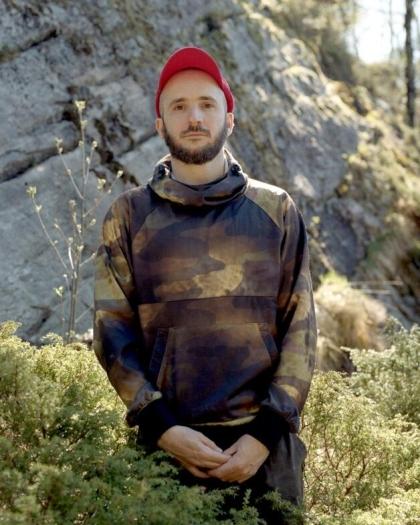DH Lecture Series: Four theses on algorithmic folklore
How do algorithms influence creativity in our digital everyday lives? In this lecture, Gabriele de Seta explores the phenomenon of "algorithmic folklore" – a new interplay between human creativity and automation. Through four thought-provoking theses, he highlights how algorithms shape not only what we see but also how we create.

Main content
The lecture is held in English.
Recent advancements in machine learning have brought new forms of automation to the forefront of online interactions, exposing users of social media platforms and apps to different and unfamiliar kinds of algorithmic logics, which range from the curatorial biases of recommender systems and content analytics to the expansive possibilities offered by large language models and synthetic media. All these forms of automation are not only shaping how content circulates, but also how it is produced, and this is already evident in new genres of vernacular creativity that emerge in response to algorithmic tools and their logics - an algorithmic folklore. After unpacking the definition of "algorithmic folklore" - the outcome of vernacular creative practices grounded in new forms of collaboration between human users and automated systems - and sharing some key examples, de Seta puts forwards four theses about this emergent domain of digital culture. These four theses are:
- algorithmic folklore is new in terms of scale, but has a long history in specialized fields;
- the distinctive feature of algorithmic folklore is the mutual shaping of creativity;
- algorithmic folklore thrives in the knowledge gaps created by the redistribution of agency between humans and automated systems;
- as an emerging epistemological resource, algorithmic folklore challenges the distinction between vernacular and expert knowledge.
About the lecturer
Gabriele de Seta is, technically, a sociologist. He is a Researcher at the University of Bergen, where he leads the ALGOFOLK project (“Algorithmic folklore: The mutual shaping of vernacular creativity and automation”) funded by a Trond Mohn Foundation Starting Grant (2024-2028). Gabriele holds a PhD from the Hong Kong Polytechnic University and was a Postdoctoral Researcher at the Institute of Ethnology, Academia Sinica and at the University of Bergen, where he was part of the ERC-funded project "Machine Vision in Everyday Life". His research work, grounded on qualitative and ethnographic methods, focuses on digital media practices, sociotechnical infrastructures and vernacular creativity in the Chinese-speaking world. He is also interested in experimental, creative and collaborative approaches to knowledge-production.
The DH Lecture Series
The DH Lecture Series is a collaboration between the Digital Lab at the University of Bergen Library, the D-lab at NTNU and the Norwegian Network for Digital Humanities and Cultural Organization (DHKO). The lecture series addresses DH-related topics, and gives researchers and others involved in DH projects or research the opportunity to share their experiences, successes and challenges related to the use of digital tools and/or methods.
Do you have suggestions for topics you would like to hear more about, or are you working on something that you would like to share in a lecture? Do not hesitate to contact us organizers by e-mail.
In the spring of 2025, you can attend digital DH lectures on the following dates and times:
Thursday 13th of February at 11.30-12.00
Thursday 13th of March at 11.30-12.00
Thursday 10th of April at 11.30-12.00
Thursday 8th of May at 11.30-12.00
Follow the Digital Lab's calendar for more information about each individual lecture.
Practical information
Sign up for the lecture by using the registration form. A Zoom link will be sent out to all registered participants the day before.
